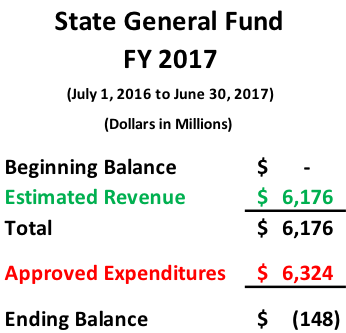By Ann Marie Bush
Kansas State Department of Education
FORT SCOTT, KAN. — Tucked away in the downtown area of this small southeast community, one can find the true definition of an unsung hero.
Merriam-Webster defines unsung as “not given attention and praise that is deserved for doing good things.” However, the Lowell Milken Center for Unsung Heroes in Fort Scott shines the spotlight on several unsung heroes.
There is Therese Frare, who as a young photojournalist took an iconic photograph of a dying man with AIDS. The photograph helped change the face of the HIV/AIDS epidemic in the 1990s.
Unsung Hero Irena Sendler was a young Catholic social worker who led a network of volunteers to rescue more than 2,500 Jewish children from the Warsaw Ghetto during World War II.
Then there is Lt. Col. Tran Ngoc “Harry” Hue, who served with the 1st Infantry Division Army of the Republic of Vietnam. He fought alongside American soldiers during Vietnam, saving numerous South Vietnamese and American lives. In 1971, Hue was taken prisoner by enemy forces while searching for supplies. He was tortured for 13 years, but refused to give in even after being forced to live in horrific conditions.
Many of these stories have been researched and told by students across the nation. For example, Hue’s story was told by two Seaman Unified School District 345 students — Hailey Reed and Andrea Sodergren. The two students, along with their teacher, Susan Sittenauer, joined Hue and several of his family members for the grand opening of the Lowell Milken Center for Unsung Heroes on May 24.
Frare and another Unsung Hero, Kendall Reinhardt, also attended the event. As a young white student, Reinhardt befriended nine black teenagers who later became known as the Little Rock Nine.
Lowell Milken, co-founder and chairman of the Milken Family Foundation, was on hand for the event, too. Other special guests included Kansas Commissioner of Education Randy Watson, Deputy Commissioners Dale Dennis and Brad Neuenswander and Heather Smith, director of economic development for Fort Scott.
“There is a great feeling of honor to have completed the Hall of Unsung Heroes,” Milken said while dozens of people toured the center.
The 6,000-square-foot interactive museum, which sits on the corner of Wall and Main Streets, is dedicated to people who have taken extraordinary actions to help others but who have been ignored by history until now. It features interactive exhibits, a 48-seat theater with bench seating, a conference room, life-sized apple tree symbolizing where Sendler buried jars containing the names of children who had been smuggled out of Poland and award-winning student art.
The unsung heroes have been discovered by students and teachers through LMC’s project-based learning approach. New projects and exhibits are continually in development, and executive director Norm Conard said some of the exhibits will change out every few months.
“This is a testimony to great teachers, great students and American education,” Conard said. “So much is right with education in America.”
LMC was launched in 2007. However, the idea for it came about in 1992 when Milken honored high school teacher Conard with a Milken Educator Award at Uniontown High School in Kansas. During his teaching career, Conard, who transitioned from the classroom to executive director, has engaged thousands of students in history projects that incorporate performing arts, multimedia and video production.
One of those outstanding students was Megan Felt. Felt in 1999 was a freshman in Conard’s history class. Felt, Conard and other students unearthed the story of Sendler. The students wrote a play about her, which they entitled, “Life in a Jar.” The play has been performed more than 350 times throughout the United States and Europe. The students and Conard found out Sendler was still living in Poland and went to visit her. Sendler was nominated in 2007 for the Nobel Peace Prize, one year before her death. The play was the premise for a book and movie about Sendler.
Milken offered support for the “Life in a Jar” project, and he and Conard began talking about how they could further promote educational projects that shed light on unsung heroes. That led to the creation of the Lowell Milken Center for Unsung Heroes nonprofit initiative in April 2007.
The center has been operated in a smaller exhibit space in downtown Fort Scott. The center has welcomed 40,000 visitors from 80 countries since its inception in 2007. The popularity spurred the creation of the new facility. The former space will be used to train educators and students to do research and project-based learning on unsung heroes.
The center is open from 8 a.m. to 5 p.m. Monday through Friday and by appointment on Saturday.
The LMC Fellowship Project, another aspect of the nonprofit initiative, unites top educators and offers them educational resources and ongoing support to enhance their classrooms. The program has grown from two LMC Fellows in 2008 to 71 in 2015.
Nate McAlister, a 2015 Fellow who teaches at Royal Valley Middle School, was one of the visitors to the center May 24.
“It’s history on display, and it’s telling the story of those who have been forgotten by history,” McAlister said. “The students are the heroes, too. They are the ones telling these stories that need to be told.”
PHOTOGRAPHS BY ANN MARIE BUSH/KSDE
Lt. Col. Tran Ngoc Hue is one of the Unsung Heroes featured in the center. Two Seaman High School students told Hue's story for the National History Day contest and won.
Left to right, Heather Smith, director of economic development for the city of Fort Scott, Dr. Randy Watson, Kansas commissioner of education, and Lowell Milken, co-founder and chairman of the Milken Family Foundation, listen to comments during the ceremony.
Inside the center, several displays are available for viewing.
| 


